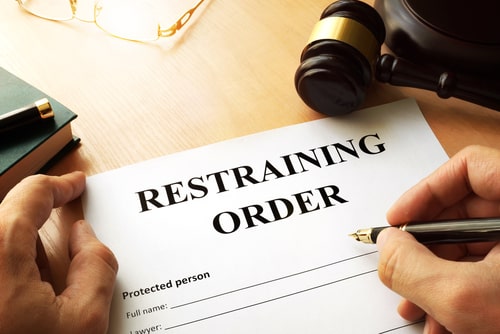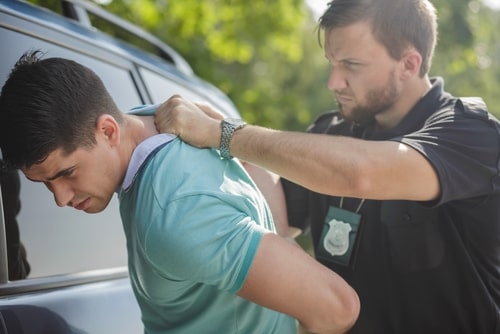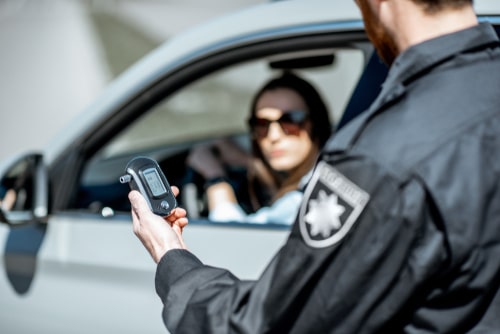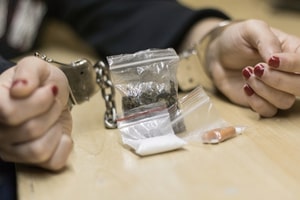2591 Dallas Parkway, Suite 207A, Frisco, TX 75034
Free Consultations
469-333-3333
 |
DO I HAVE TO GO TO TRIAL IN TEXAS? |
Recent Blog Posts
Can I Appeal an Emergency Protective Order in Texas?
 A Magistrate’s Emergency Order of Protection (commonly referred to as a “protective order” or “EPO”) is a legally binding order that immediately restricts the behavior of someone arrested for an alleged act of family violence (known as the “respondent”).
A Magistrate’s Emergency Order of Protection (commonly referred to as a “protective order” or “EPO”) is a legally binding order that immediately restricts the behavior of someone arrested for an alleged act of family violence (known as the “respondent”).
Among other things, an EOP may prohibit the respondent from communicating with the alleged victim, going within a minimum distance of the alleged victim or their residence, or speaking to or going near the alleged victim’s children. This is true even if the respondent lives at the same residence as the victim.
When Will a Judge Remove or Amend an Emergency Order of Protection?
An EOP is often a necessary protection for victims of domestic violence. However, because EOPs are powerful orders that have serious consequences, sometimes an alleged victim may make false allegations that result in an EOP. Other times, an EOP may be issued for a family violence arrest but the respondent needs it modified so they can return home to take care of work or family responsibilities.
Despite New Law, Silencers Are Still Subject To Federal Regulation
 Gun rights advocates are celebrating the new law set to go into effect in September that removes firearm silencers from the list of items prohibited by the state, but there are a few things you should know before you run out and try to buy one.
Gun rights advocates are celebrating the new law set to go into effect in September that removes firearm silencers from the list of items prohibited by the state, but there are a few things you should know before you run out and try to buy one.
The new law, dubbed House Bill 957, deregulates sound suppressors made in Texas from federal law as long as they stay in Texas. However, you can only buy silencers from a licensed dealer. Under federal gun law, gun dealers -- and subsequently you -- still have to comply with the lengthy federal process.
House Bill 957
The Texas governor signed HB 957 into law in June alongside a number of other gun bills designed to loosen restrictions on firearm ownership. These include measures like making Texas a Constitutional Carry state, meaning any law-abiding Texan can carry a gun without a license, and another declaring Texas a Second Amendment sanctuary, which prohibits state officials from enforcing future federal gun laws.
New Law Would Require Blood Test For Some DWI Offenses
 Starting on Sept. 1, 2021, if you are arrested for driving while intoxicated (DWI) after you were in a car accident that caused someone a serious injury or death, you will be required by law to have your blood drawn. Despite legal scholars raising concerns about government overreach and Fourth Amendment violations, the state governor signed the bill into law in June 2021 without comment.
Starting on Sept. 1, 2021, if you are arrested for driving while intoxicated (DWI) after you were in a car accident that caused someone a serious injury or death, you will be required by law to have your blood drawn. Despite legal scholars raising concerns about government overreach and Fourth Amendment violations, the state governor signed the bill into law in June 2021 without comment.
Background on HB 558
According to news reports, the bill was introduced in November 2020 after a Denison school teacher was struck by a vehicle and killed, but the driver was never held accountable. The teacher was on a morning walk with her husband when their neighbor hit them with his truck. The teacher died as a result of her injuries and her husband was seriously injured.
While investigating the case, the responding officer smelled alcohol on the driver’s breath and the driver said he had been drinking the night before. The officer thought his observations were enough to administer field sobriety tests, but the driver passed them and then blew a .06 on the breathalyzer test, which is under the legal limit. Because of those factors, the investigating officer did not request a warrant for a blood draw. Later on, a grand jury reviewed the evidence and declined to indict the driver for manslaughter or criminal negligence.
Texans With Cancer Or PTSD Can Soon Join State’s Medical Marijuana Program
As of Sept. 1, 2021, Texans who are being treated for cancer at any stage or Post Traumatic Stress Disorder will be able to use cannabis products under the Texas Compassionate Use Program, which allows doctors to prescribe cannabis products with low levels of tetrahydrocannabinol (THC) as a treatment.
When the program was created in 2015, lawmakers limited who could be prescribed cannabis products to only those who suffer from epilepsy. They expanded it in 2019 to include patients with amyotrophic lateral sclerosis, autism, incurable neurodegenerative disease, multiple sclerosis, seizure disorder, spasticity, or terminal cancer.
According to The Texas Tribune, lawmakers accepted two arguments for adding cancer at any stage and PTSD to the list of approved conditions. First, THC is thought to alleviate cancer treatment side effects like nausea, loss of appetite, and body pains. THC affects the amygdala, the part of the brain that controls fear. Marijuana products may help those who suffer from PTSD, particularly veterans, by calming them down when they encounter something that triggers trauma.
Does Texas Have A Mandatory Arrest Policy For Domestic Violence?
 Domestic disturbances are a major concern for jurisdictions across the country and in the great state of Texas. The reason is an argument could escalate, turn into a fight, and become something worse. In fact, approximately one out of five murder victims in the U.S. were killed by an intimate partner. Needless to say, the concern about domestic violence is real, but how states require police to address it varies.
Domestic disturbances are a major concern for jurisdictions across the country and in the great state of Texas. The reason is an argument could escalate, turn into a fight, and become something worse. In fact, approximately one out of five murder victims in the U.S. were killed by an intimate partner. Needless to say, the concern about domestic violence is real, but how states require police to address it varies.
Mandatory Arrest Policy
When police officers investigate domestic disturbances, they generally start by separating the parties involved and conducting a preliminary interview. It may feel like an invasive process given that they ask about intimate and sometimes embarrassing details about your life. The goal, however, is to see if there was physical contact. Now, this is where states may differ.
What Is the Timeline for a DWI Case in Texas?
 There are about 28 people killed in drunk-driving accidents each day, according to the National Highway Traffic Safety Administration. Consequently, jurisdictions across the country prioritize preventing driving while intoxicated, or driving under the influence. The NHTSA teaches police officers to collect a host of information regarding every stage of the DWI stop.
There are about 28 people killed in drunk-driving accidents each day, according to the National Highway Traffic Safety Administration. Consequently, jurisdictions across the country prioritize preventing driving while intoxicated, or driving under the influence. The NHTSA teaches police officers to collect a host of information regarding every stage of the DWI stop.
By streamlining the process, the authorities are hoping to build the strongest case against you and as a result increase their conviction rate. There are certainly a lot of reasons to discourage drunk driving. The first being they want to make the roads safer and prevent you or anyone else from being hurt or killed unnecessarily because of a DWI crash.
Statute of Limitations for DWI
In the state of Texas, a DWI is usually considered a misdemeanor offense, which means the authorities must indict you within two years of the offense. So, if you are arrested for DWI on July 26, 2021, they have until July 26, 2023 to formally accuse you of the crime. Ordinarily, you are charged with the crime shortly after being arrested, but authorities might wait to charge you as they await lab results.
What Happens If I Refuse the Breathalyzer During a DWI Arrest?
 When a police officer believes you are driving while intoxicated, they will work through a process to build the strongest possible case against you. This process involves asking a series of questions about your whereabouts and recent alcohol consumption, they will request that you participate in a series of field sobriety tests, and finally, they will request that you submit to chemical testing. To say this a different way, building the strongest possible DWI case requires your compliance. You may wonder how you should respond to the officer’s requests.
When a police officer believes you are driving while intoxicated, they will work through a process to build the strongest possible case against you. This process involves asking a series of questions about your whereabouts and recent alcohol consumption, they will request that you participate in a series of field sobriety tests, and finally, they will request that you submit to chemical testing. To say this a different way, building the strongest possible DWI case requires your compliance. You may wonder how you should respond to the officer’s requests.
Implied Consent
All 50 states have implied consent laws, which means that when you get your driver’s license, you inherently agree to submit to chemical tests if an officer believes you are under the influence of an intoxicant while driving a vehicle. The legal concept of implied consent does not apply to answering questions or field sobriety tests. Yet, it does apply to the breathalyzer, the device in which you blow into and then uses your breath to measure your blood-alcohol concentration (BAC).
How Do Police Investigate a DWI?
 In local jurisdictions across the country, it is often considered a high priority for police to make arrests for driving under the influence. While laws may vary and terminology may change -- DUI instead of DWI, for instance -- most police officers follow the same procedures for identifying, investigating, and ultimately determining to arrest a driver suspected of being under the influence of alcohol or drugs. So, how do police investigate a DWI?
In local jurisdictions across the country, it is often considered a high priority for police to make arrests for driving under the influence. While laws may vary and terminology may change -- DUI instead of DWI, for instance -- most police officers follow the same procedures for identifying, investigating, and ultimately determining to arrest a driver suspected of being under the influence of alcohol or drugs. So, how do police investigate a DWI?
The NHTSA
The National Highway Traffic Safety Administration created the standards and guidelines for DWI investigation and also provide training and instruction materials for police agencies nationwide. According to the DWI Detection and Standardized Field Sobriety Test Manual, a police officer should investigate a DWI in three phases
Phase One - Vehicle in Motion
What Happens if You Are Caught with Cocaine in Texas?
 Texas is known for having strict laws prohibiting the use of drugs like marijuana, cocaine, heroin, and methamphetamine. If you or a loved one were arrested for possession of cocaine, it is important to realize the gravity of these allegations. You or your loved one may be facing life-changing criminal penalties. The penalties you face are especially harsh if the prosecution alleges possession with intent to distribute.
Texas is known for having strict laws prohibiting the use of drugs like marijuana, cocaine, heroin, and methamphetamine. If you or a loved one were arrested for possession of cocaine, it is important to realize the gravity of these allegations. You or your loved one may be facing life-changing criminal penalties. The penalties you face are especially harsh if the prosecution alleges possession with intent to distribute.
Cocaine Possession Laws in Texas
The state of Texas categorizes illicit substances into several penalty groups based on the drug’s perceived severity. Cocaine is in penalty group 1, which means that cocaine-related offenses are penalized more harshly than offenses involving drugs like marijuana. Being caught with even a small amount of cocaine or crack cocaine is a felony offense punishable by significant jail time. The greater the amount of cocaine allegedly in your possession, the harsher the penalties:
Top Mistakes to Avoid When Interacting with Law Enforcement During a Traffic Stop
 There is no doubt that law enforcement officers are a crucial component in a safe and functioning society. However, the U.S. Constitution, as well as other legislation, Limits the authority of police officers and other government officials in order to protect citizens’ rights. If you are ever stopped by police or arrested for a criminal offense, it is crucial that you assert your rights and avoid these common mistakes.
There is no doubt that law enforcement officers are a crucial component in a safe and functioning society. However, the U.S. Constitution, as well as other legislation, Limits the authority of police officers and other government officials in order to protect citizens’ rights. If you are ever stopped by police or arrested for a criminal offense, it is crucial that you assert your rights and avoid these common mistakes.
Acting Suspiciously or Aggressively During a Traffic Stop
If you are pulled over for speeding, running a stop sign, or another alleged infraction, it is important to remember that many traffic stops result in little more than a warning or minor fine. The actions that you take during the traffic stop can directly influence how the traffic stop ends. When you see flashing lights, pull over and turn the vehicle off. When the officer walks over to your car, roll down the window and respond politely in a non-aggressive tone. Give the officer your license, registration, and insurance information if asked for it.


 600+ DWI & CRIMINAL DEFENSE TRIALS
600+ DWI & CRIMINAL DEFENSE TRIALS
















